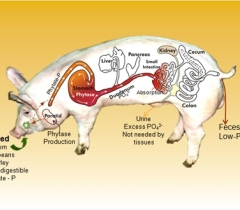Enviropig project halted as Ontario Pork pulls the plug

Ontario Pork has decided to end its funding on the University of Guelph’s first genetically engineered pig project, also known as Enviropig.
The herd will be euthanised by the summer if an industry partner isn’t found. Frozen semen will be saved so that the herd could be recreated if a future interested company is found.
Enviropig
The University of Guelph, located in London, Ontario, Canada, developed the Enviropig in 1999.
The less polluting Yorkshire breed pig, has a gene that allows it to better digest phosphorus (P) in its food, therefore reducing the amount of P in the manure. P can contribute to algal blooms and other environmental problems.
The university’s Enviropig herd contains 16 members. Some animals represent the tenth generation. Cecil Forsberg, an emeritus professor of molecular and cellular biology at the university, and in charge of the project, said he agreed with Ontario Pork’s decision.
Acceptable
Referring to the start of the project in 1999 he told the Toronto newspaper The Star: “I had the feeling in seven or eight or nine years that transgenic animals probably would be acceptable. But I was wrong. It’s time to stop the program until the rest of the world catches up. And it is going to catch up.”
The Enviropig was created by the use of genetic material from a mouse and an E. coli bacterium to reduce P in the pig’s faeces.
Environment Canada
The university made further ground, when Environment Canada determined Enivropig does not harm the environment under the Canadian Environmental Protection Act and accepted the University of Guelph’s notice of significant new activity, an indication that the genetically engineered pig could be farmed commercially.
Related websites:
• Ontario Pork
• University of Guelph











